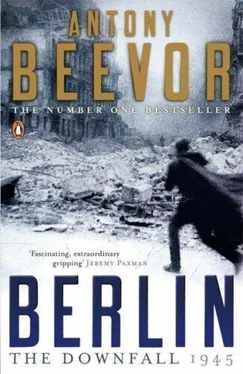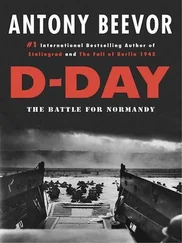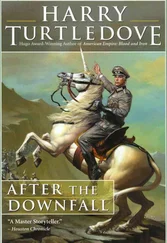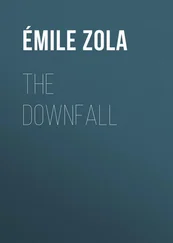Fedyuninsky’s advance cut off the German defenders of Marienburg castle, who had been assisted in their defence by salvoes fired from the heavy cruiser Prinz Eugen, out in the Baltic. The castle was abandoned on the night of 8 March, and two days later Elbing fell, as Weiss had warned. The German Second Army, threatened from the west and the south, pulled in to defend Danzig and Gdynia to allow as many civilians and wounded as possible to be evacuated from the ports packed with refugees.
On 8 March, just two days after the start of the westward sweep on Danzig, Soviet forces occupied the town of Stolp unopposed, and two days later, the 1st Guards Tank Army and the 19th Army reached Lauenburg. A refugee column fleeing for the ports was overtaken by a tank brigade. Women and children fled, stumbling through the snow, to shelter in the forest while Soviet tanks crushed their carts under their tracks. They were more fortunate than other trek columns.
Not far from Lauenburg, Red Army troops discovered another concentration camp. This was a women’s camp, and their doctors immediately set to work caring for the survivors.
The fate of Pomeranian families was similar to those in East Prussia. Himmler had forbidden the evacuation of civilians from eastern Pomerania, so around 1.2 million were cut off by the thrust north to the Baltic on 4 March. They had also been deprived of news, just as in East Prussia. But most families had heard rumours and, refusing to trust the Nazi authorities, they prepared themselves.
Landowning families — ‘the manor folk’, as the villagers called them — knew that they were the most likely to be shot, and their tenants urged them to leave for their own good. Carriages and carts were prepared. Near Stolp, Libussa von Oldershausen, the stepdaughter of Baron Jesko von Puttkammer, who had refused to sacrifice the local Volkssturm at Schneidemühl, was nine months pregnant. The estate carpenter built a wagon frame over which the large carpet from the library was fastened to provide shelter from the snow. The expectant mother would lie inside on a mattress.
In the early hours of 8 March, Libussa was woken by a pounding on the door. ‘Trek orders!’ somebody shouted. ‘Get up! Hurry! We’re leaving as soon as possible.’ She dressed as quickly as she could and packed her jewels. The manor house was already full of refugees and some of them began to loot the rooms even before the family had left.
As many Pomeranian and East Prussian families found, their French prisoner-of-war labourers insisted on coming with them rather than wait behind to be liberated by the Red Army. The rumble of artillery fire could be heard in the distance as they climbed into the converted cart and other horse-drawn vehicles. They headed east for Danzig. But even with a headstart, their horse-drawn carts were outpaced in a few days by Katukov’s tank brigades.
Libussa awoke in the middle of the night after they had heard that they would not reach safety in time. By the light of a candle-stump, she saw that her stepfather had put on his uniform and medals. Her mother was also dressed. Since the Red Army was bound to cut them off, they had decided to commit suicide. Nemmersdorf and recent atrocity tales from East Prussia had convinced them that they should not be taken alive. ‘It’s time,’ said Baron Jesko. ‘The Russians will be here in an hour or two.’ Libussa accompanied them outside, planning to do the same, but at the last moment she suddenly changed her mind. ‘I want to go with you, but I can’t. I’m carrying the baby, my baby. It’s kicking so hard. It wants to live. I can’t kill it.’ Her mother understood and said that she would stay with her. The baron, bewildered and dismayed, was forced to get rid of his uniform and pistol. Their only hope of survival was to be indistinguishable from the other refugees when the Red Army arrived. They must not be spotted as ‘lordships’.
The first sign that Soviet troops had arrived was a signal flare which shot out of a plantation of firs. It was rapidly followed by the roar of tank engines. Small trees were crushed flat as the tanks emerged like monsters from the forest. A couple of them fired their main armament to intimidate the villagers, then sub-machine gunners fanned out to search the houses. They fired short bursts on entering rooms to cow those inside. This brought down a shower of plaster. They were not the conquerors the Germans had expected. Their shabby brown uniforms, stained and ripped, their boots falling to pieces and lengths of string used instead of gun slings were so unlike images of the victorious Wehrmacht projected in newsreels earlier in the war.
Looting was carried out briskly with cries of ‘Uri Uri! ’ as the Soviet soldiers went round grabbing watches. Pierre, their French prisoner of war, protested in vain that he was an ally. He received a rifle butt in the stomach. They then searched the refugees’ luggage and bundles until they heard orders yelled by their officers outside. The soldiers stuffed their booty down the fronts of their padded jackets and ran out to rejoin their armoured vehicles.
The civilians, shaking with a mixture of fear and relief that they had survived this first encounter with the dreaded enemy, suddenly faced the second wave, in this case a cavalry detachment. They had more time, which meant time to rape. The door was thrown open and a small group of Red Army soldiers came in to pick their victims.
Hitler had sacked General Weiss, the commander of the Second Army, for having warned Führer headquarters that Elbing could not be held. In his place, he had appointed General von Saucken, the former commander of the Grossdeutschland Corps.
On 12 March, General von Saucken was summoned to the Reich Chancellery to be briefed on his new appointment. This former cavalryman entered the room wearing a monocle and the Knight’s Cross with Swords and Oak Leaves at his neck. Slim and elegant, Saucken was an ultra-conservative who openly despised the ‘ braune Bande ’ of Nazis. Hitler asked Guderian to brief him on the situation in Danzig. Once that was completed, Hitler told Saucken that he must take his orders from the Gauleiter, Albert Förster. General von Saucken stared back at Hitler. ‘I have no intention,’ he replied, ‘of placing myself under the orders of a Gauleiter.’ Not only had Saucken flatly contradicted Hitler, he had failed to address him as ‘ Mein Führer’. Even Guderian, who had been through more rows with Hitler than most people, was shaken. Yet onlookers were even more surprised by Hitler’s acquiescence. ‘All right, Saucken,’ he replied weakly. ‘Keep the command to yourself.’
Saucken flew to Danzig the next day. He was determined to hold the two ports to allow the escape of as many civilians as possible. It was estimated that Danzig’s population was swollen to 1.5 million and that there were at least 100,000 wounded. Amid the chaos, the SS began seizing stragglers at random and hanging them from trees as deserters. Food was desperately short. A 21,000-ton supply ship hit a mine and sank with six days’ supplies for Danzig and Gdynia.
The Kriegsmarine not only demonstrated extraordinary tenacity and bravery in the evacuation, it also continued to give offshore fire support despite constant air attacks and the threat of torpedoes from Soviet submarines of the Baltic Fleet. The cruisers Prinz Eugen and Leipzig and the old battleship Schlesien thundered away with their main armament at the encircling Red Army. But on 22 March, the Red Army smashed the Danzig-Gdynia defence perimeter in the middle, between the two ports. Soon both came under accurate artillery fire in addition to the never-ending raids by Soviet aviation.
Fighter bombers strafed the towns and the port areas. Soviet Shturmoviks treated civilian and military targets alike. A church was as good as a bunker, especially when it seemed as if the objective was to flatten every building which still protruded conspicuously above the ground. Wounded waiting on the quays to be embarked were riddled on their stretchers. Tens of thousands of women and children, terrified of losing their places in the queues to escape, provided unmissable targets. There was no time to help or pity the dead and injured. Only children, orphaned from one instant to the next, would be gathered up. And with the unremitting racket of the 88mm and light flak anti-aircraft batteries, nobody could hear their sobbing.
Читать дальше











